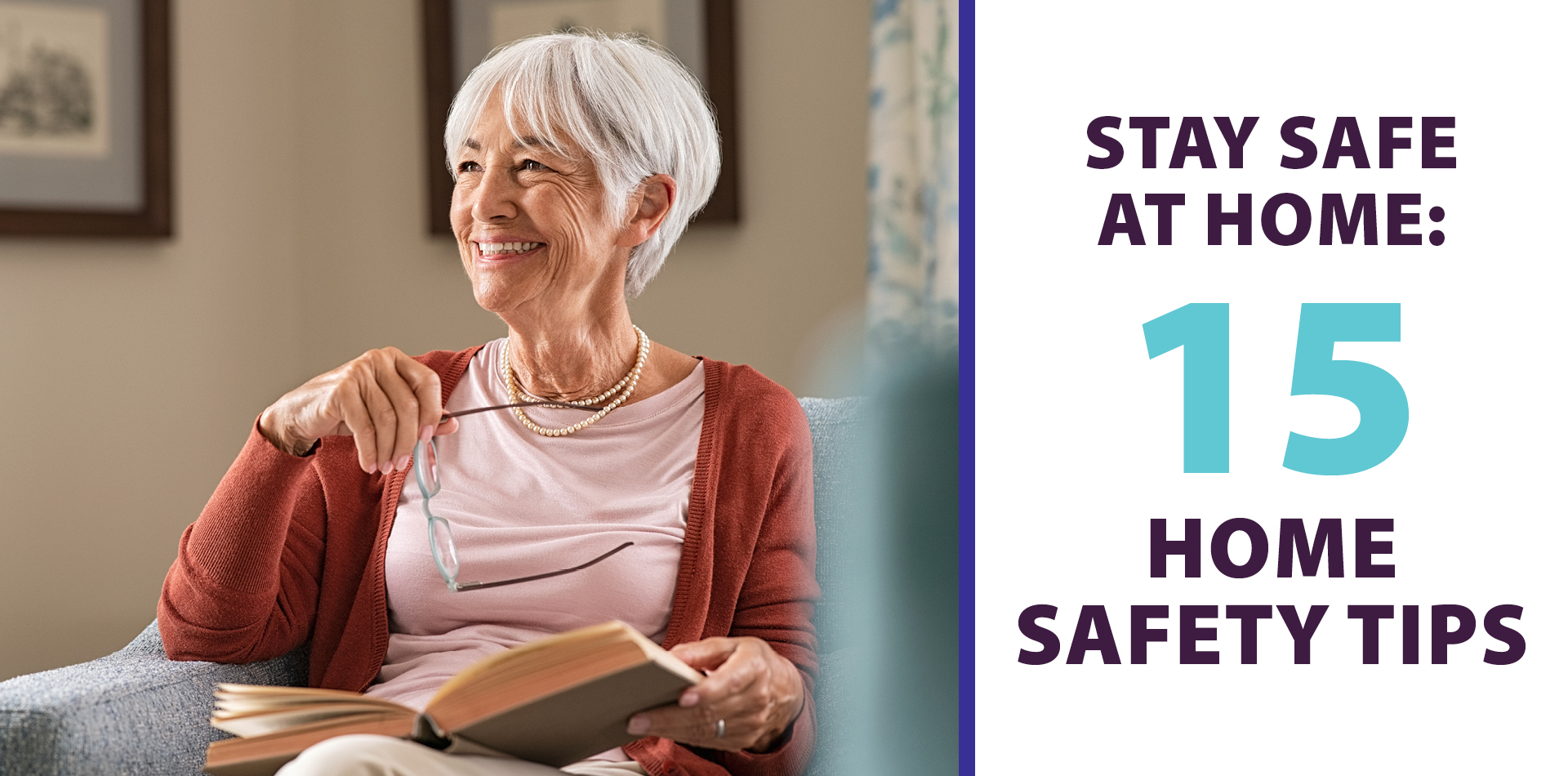
As we age, maintaining a safe home environment becomes increasingly important. The risks of slips, falls, or other injuries can be reduced by taking simple but effective precautions. Whether you’re living independently or with loved ones, these tips can help you stay safe and confidently enjoy your home.
1. Use Assistive Devices Correctly
Assistive devices like canes, walkers, and grab bars are designed to make life easier and safer, but only if they’re used properly. If your doctor or therapist has recommended a device, be sure to use it as instructed. Avoid makeshift solutions like furniture for support, as these can increase the risk of falls.
2. Improve Lighting
Good lighting is essential to avoid accidents. Make sure hallways, staircases, and entryways are well-lit. Use nightlights in bedrooms and bathrooms to ensure safe navigation at night. Opt for bright, energy-efficient bulbs for clearer visibility.
3. Manage Medications Safely
Keeping track of medications can be tricky but is crucial for your health and safety. Use a pill organizer or an app to avoid missing doses or taking duplicates. Store medications in a safe, dry place and clearly label each one.
4. Pace Yourself
It’s easy to overexert yourself when completing daily tasks. Remember to take breaks, especially during physically demanding activities. Proper pacing reduces the risk of injury and keeps you feeling energetic throughout the day.
5. Stay Hydrated
Proper hydration isn’t just about comfort; it’s essential for balance, mental clarity, and overall health. Keep a water bottle nearby and make it a habit to sip regularly, especially during warmer months or after physical activity.
6. Schedule Regular Vision and Hearing Checks
Declining vision or hearing can increase the risk of accidents. Ensure you’re using the correct prescription for glasses and hearing aids. Address any changes in your senses promptly by consulting your healthcare provider.
7. Establish a Bathroom Schedule
Regular bathroom visits can prevent rushing, which often leads to falls. A schedule also helps manage bladder health, particularly for those dealing with incontinence issues.
8. Optimize Your Home Layout
Arrange your home for safety and convenience. Keep frequently used items at waist height to avoid the need for climbing or bending. Ensure furniture placement allows for easy movement throughout your home.
9. Remove Throw Rugs
While decorative, throw rugs are a common tripping hazard. If you love rugs, consider non-slip mats or secure them firmly with double-sided tape to avoid accidents.
10. Be Mindful of Pets
Pets bring joy but can also pose risks. Ensure they’re not underfoot when you’re moving around. Train them to stay out of walkways or use gates to restrict their movement during busy times.
11. Address Difficult-to-Open Doors
Replace hard-to-turn doorknobs with lever handles or add door grips for easier access. Automatic door openers can be a lifesaver for those with limited strength or mobility.
12. Choose Proper Footwear
Wearing the right shoes can significantly reduce your risk of falls. Choose non-slip soles, avoid high heels or slippers without grip, and replace worn-out shoes promptly.
13. Plan Ahead
Take time to prepare for daily activities. Whether it’s making meals or running errands, having a plan reduces stress and helps you avoid rushing, which often leads to mistakes or injuries.
14. Prioritize Frequently Used Items
Keep everyday items within easy reach. Avoid storing essential items on high shelves or in hard-to-access spaces to minimize unnecessary strain.
15. Declutter Regularly
A clutter-free home is a safer home. Clear pathways and remove unnecessary items from floors and surfaces. Consider donating or discarding items you no longer use.
Bonus #16 – Ask For Help
Don’t hesitate to reach out for help when needed. Whether it’s asking a family member to change a lightbulb or hiring help for home repairs, support is available. Accepting assistance isn’t a sign of weakness but a smart step toward staying safe and independent.
By implementing these simple but impactful tips, you can create a safer and more comfortable living environment for yourself. Remember, your well-being is worth every effort!
VISIT OUR EXPOS BELOW!









